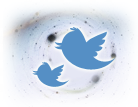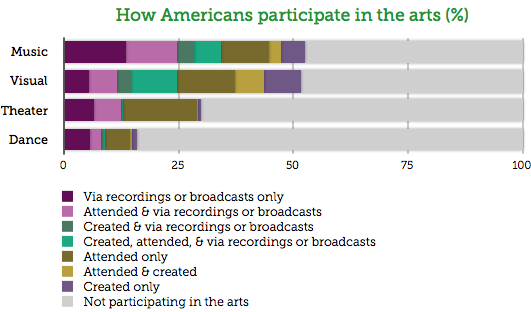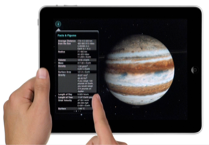There are gender wars, and then there are casualties. It wasn’t until 2011 that the behemoth toymaker LEGO acknowledged girls’ desire to build with bricks, even though the company had long before made a seemingly effortless pivot to co-branding, video games, and major motion pictures. So it’s little wonder that girls face all-too-real obstacles when […]
Read moreTag: Data
 On Twitter, almost no one hears you. Or at least that’s the case for 99.95% of Twitter users whose Tweets evaporate into the aether, scrolling off the feed, leaving scarcely a trace.
On Twitter, almost no one hears you. Or at least that’s the case for 99.95% of Twitter users whose Tweets evaporate into the aether, scrolling off the feed, leaving scarcely a trace.
According to statistics released last week by Twitter, users now send a billion Tweets a week (up nearly 3x from 350M a year ago). But most of those Tweets get little attention, reports a new study, to be presented next week at a web conference in India. The study found that attention is highly concentrated among a very narrow slice of Twitter users. Read on for more about the findings…
(more…)
 The growing field of digital humanities is hampered by a lack of motivation to share tools, and a lack of direct rewards from the academic establishment, says a new study published last month in the Digital Humanities Quarterly.
The growing field of digital humanities is hampered by a lack of motivation to share tools, and a lack of direct rewards from the academic establishment, says a new study published last month in the Digital Humanities Quarterly.
Digital humanities uses computers as part of research in arts and humanities. Computers are useless in isolation; they need software written to do interesting analyses. Some processing can be done using simple text processing tools to sort and count words. More complex research requires new tools (new computer programs) to be created. The study looked at the people who create those new tools. One key finding was that creating new software does little to help researcher’s careers.
Computers and the internet are an increasingly important way that Americans engage in the arts, says a new report from the National Endowment for the Arts. The first bar in the chart below is people consuming recorded or broadcast content:

 On the screens of millions of iPad and other mobile devices, moons and stars, elements and molecules swirl beneath our fingertips. Developer Mike Howard says he wants to “make you feel like you are actually there in orbit.” Theodore Gray wants you to look at the periodic table and be transported to the world of Harry Potter, feeling as “if you checked out a magical version of The Elements from the Hogwarts library.”
On the screens of millions of iPad and other mobile devices, moons and stars, elements and molecules swirl beneath our fingertips. Developer Mike Howard says he wants to “make you feel like you are actually there in orbit.” Theodore Gray wants you to look at the periodic table and be transported to the world of Harry Potter, feeling as “if you checked out a magical version of The Elements from the Hogwarts library.”
Apps represent a shift in how students and the public learn about science. Currently, the best science apps are not being created by museums, traditional publishers, or curriculum developers — They are being created by enthusiastic solo developers, research centers, and new software companies with a penchant for science and public education. We’ll look at what motivated these app creators, what it took to make the apps, and how successful they have been. (more…)
Creating an online environment that fosters discovery. The sun in Monet’s “Impression Sunrise” is oddly vivid due to a curious visual phenomenon. Users explore this phenomenon by varying color saturation and brightness. (WebExhibits) Problem A web site that offers only text does not encourage visitors to delve deeper into the subject matter. Solution Create
Data loss
May 2nd, 2006 by IDEA
Protecting your organization from data loss requires forethought. Catastrophic data loss is rare, but it’s best to be prepared by keeping a back-up of your encrypted data in a second location. Problem You want to minimize the risk of losing data due to crashes or natural disasters. Solution Keep a back-up of your data in
Author: Patrick Parnaby A useful evaluation plan incorporates a number of factors. This penguin did a thorough evaluation and concluded that he is short. This was not useful news. Problem Your evaluation was expensive, but the results are not very useful. Solution Accurately define your stakeholders and their needs, and use that information to develop

